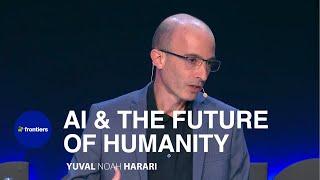VOX-Pol Virtual Roundtable: Artificial Intelligence and Extremism, Wednesday 13 December.
(Please note, some slides are blurred due to sensitivities around ongoing research)
This roundtable is organized by the VOX-Pol Network of Excellence on online extremism in the context of the ExID, Extreme Identities, project funded by the EU Horizon2020 NORFACE programme, Democratic Governance in Turbulent Times.
Over the past decade, two major phenomena have developed on the digital realm: the extensive growth of extremism on the internet and exponential improvements of Artificial Intelligence (AI) models. This VOX-Pol Roundtable examines the toxic encounter of these two evolutions, from five distinct perspectives offered by its chair and expert panellists, offering cutting-edge insights on issues such as AI-powered detection of radical content or deepfake use by extremist groups.
Chair
Dr Stephane J. BAELE is Professor of International Relations at the Catholic University of Louvain (Belgium) and Honorary Associate Professor of Security and Political Violence at the University of Exeter (UK). The editor of ISIS Propaganda (Oxford University Press), his multidisciplinary work on extremist and violent political actors’ communications has appeared in leading journals such as the Journal of Conflict Resolution or Studies in Conflict & Terrorism. He recently published a CREST Guide on “Artificial Intelligence and Extremism: The Threat of Language Models for Propaganda Purposes” (2022).
Panelists
Dr Lewys BRACE is Senior Lecturer in Computational Social Science at the University of Exeter (UK), where he is the Co-Director of the Q-Step Centre for quantitative social sciences. His work, published in journals like Terrorism & Political Violence or the Journal of Policing, Intelligence & Counter-Terrorism, harnesses data science, Open-Source Intelligence (OSINT), and artificial intelligence methods to analyse extremism, terrorism, cybercrime, and security.
Dr Thomas HEGGHAMMER is Senior Fellow of All Souls College, University of Oxford (UK). A political scientist and historian specializing in militant Islamism and jihadism (e.g., Jihadi Culture, Jihad in Saudi Arabia, or recently Abdullah Azzam’s biography The Caravan) he has recently deployed computational/AI methods for the study of extremist corpora in Arabic (e.g., “daiR: an R package for OCR with Google Document AI” in the Journal of Open Source Software, and “OCR with Tesseract, Amazon Textract, and Google Document AI: a benchmarking experiment” in the Journal Computational Social Sciences).
Dr Miron LAKOMY is Professor at the Institute of Political Sciences of the University of Silesia (Poland) and currently visiting fellow at the ITSTIME research centre in Milan (Italy). He has held visiting positions at, among others, the University of Oxford, the University of Cambridge, the University of Milan, and the European University Institute. His research primarily focuses on various aspects of political violence and terrorism on the Internet, as well as military conflicts. He is, among others, the author of the recent article “Artificial Intelligence as a Terrorism Enabler?” (published in Studies in Conflict & Terrorism).
Ms Marie SCHRÖTER is since August the Country Director of the Friedrich-Ebert-Stiftung (FES) in the Philippines (after working for FES in Tel Aviv). Before that, she focused on the role of AI in counterterrorism as a Mercator Fellow with the United Nations Office of Counter Terrorism in New York, the International Centre for the Study of Radicalization (ICSR) at the Kings College London, and AlgorithmWatch in Berlin. She is the co-founder (in 2020) of Codetekt – a civil society organization against online disinformation. She is, among others, the author of the report “Artificial Intelligence and Countering Violent Extremism: A Primer” (published by GNET in 2020).
(Please note, some slides are blurred due to sensitivities around ongoing research)
This roundtable is organized by the VOX-Pol Network of Excellence on online extremism in the context of the ExID, Extreme Identities, project funded by the EU Horizon2020 NORFACE programme, Democratic Governance in Turbulent Times.
Over the past decade, two major phenomena have developed on the digital realm: the extensive growth of extremism on the internet and exponential improvements of Artificial Intelligence (AI) models. This VOX-Pol Roundtable examines the toxic encounter of these two evolutions, from five distinct perspectives offered by its chair and expert panellists, offering cutting-edge insights on issues such as AI-powered detection of radical content or deepfake use by extremist groups.
Chair
Dr Stephane J. BAELE is Professor of International Relations at the Catholic University of Louvain (Belgium) and Honorary Associate Professor of Security and Political Violence at the University of Exeter (UK). The editor of ISIS Propaganda (Oxford University Press), his multidisciplinary work on extremist and violent political actors’ communications has appeared in leading journals such as the Journal of Conflict Resolution or Studies in Conflict & Terrorism. He recently published a CREST Guide on “Artificial Intelligence and Extremism: The Threat of Language Models for Propaganda Purposes” (2022).
Panelists
Dr Lewys BRACE is Senior Lecturer in Computational Social Science at the University of Exeter (UK), where he is the Co-Director of the Q-Step Centre for quantitative social sciences. His work, published in journals like Terrorism & Political Violence or the Journal of Policing, Intelligence & Counter-Terrorism, harnesses data science, Open-Source Intelligence (OSINT), and artificial intelligence methods to analyse extremism, terrorism, cybercrime, and security.
Dr Thomas HEGGHAMMER is Senior Fellow of All Souls College, University of Oxford (UK). A political scientist and historian specializing in militant Islamism and jihadism (e.g., Jihadi Culture, Jihad in Saudi Arabia, or recently Abdullah Azzam’s biography The Caravan) he has recently deployed computational/AI methods for the study of extremist corpora in Arabic (e.g., “daiR: an R package for OCR with Google Document AI” in the Journal of Open Source Software, and “OCR with Tesseract, Amazon Textract, and Google Document AI: a benchmarking experiment” in the Journal Computational Social Sciences).
Dr Miron LAKOMY is Professor at the Institute of Political Sciences of the University of Silesia (Poland) and currently visiting fellow at the ITSTIME research centre in Milan (Italy). He has held visiting positions at, among others, the University of Oxford, the University of Cambridge, the University of Milan, and the European University Institute. His research primarily focuses on various aspects of political violence and terrorism on the Internet, as well as military conflicts. He is, among others, the author of the recent article “Artificial Intelligence as a Terrorism Enabler?” (published in Studies in Conflict & Terrorism).
Ms Marie SCHRÖTER is since August the Country Director of the Friedrich-Ebert-Stiftung (FES) in the Philippines (after working for FES in Tel Aviv). Before that, she focused on the role of AI in counterterrorism as a Mercator Fellow with the United Nations Office of Counter Terrorism in New York, the International Centre for the Study of Radicalization (ICSR) at the Kings College London, and AlgorithmWatch in Berlin. She is the co-founder (in 2020) of Codetekt – a civil society organization against online disinformation. She is, among others, the author of the report “Artificial Intelligence and Countering Violent Extremism: A Primer” (published by GNET in 2020).
- Category
- Artificial Intelligence












Comments